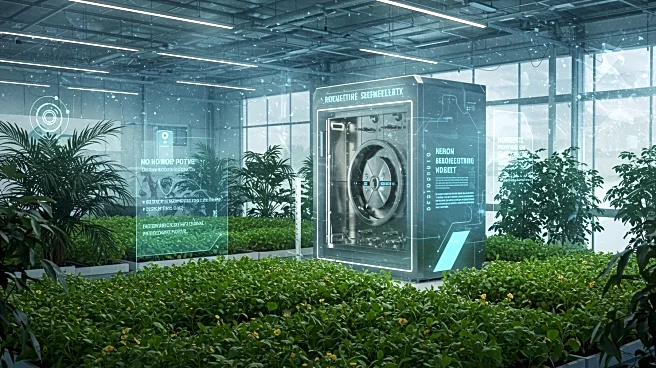What is the story about?
What's Happening?
The Agriculture GMO market is projected to expand significantly, with a compound annual growth rate of 11% from 2025 to 2032, according to a recent study. The market, currently valued at $35 billion, is expected to reach $60 billion by 2032. Key players in the market include Monsanto/Bayer, Syngenta, Dow AgroSciences, BASF, and DuPont. The study highlights advancements in CRISPR gene editing, biofortification, and the development of climate-resilient varieties as major trends. The market is driven by the increasing global population, climate change impacts, and the need for sustainable farming practices. However, challenges such as regulatory hurdles, public skepticism, and high R&D costs persist.
Why It's Important?
The growth of the Agriculture GMO market is crucial for addressing global food security challenges. As the population increases, genetically modified crops offer solutions for improving yield, pest resistance, and nutritional content. This expansion supports sustainable farming practices and reduces pesticide use, contributing to environmental sustainability. The market's growth also reflects increasing consumer acceptance and integration with precision agriculture technologies, which can enhance agricultural efficiency. However, ethical considerations and biodiversity impacts remain concerns that need to be addressed.
What's Next?
The Agriculture GMO market is expected to continue expanding into new geographies and developing climate-smart crops. Companies are likely to focus on improving crop nutrition to combat malnutrition and combining GMOs with digital farming technologies. Collaborations between public and private sectors may facilitate technology dissemination and overcome regulatory challenges. As the market grows, stakeholders will need to address intellectual property disputes and market access restrictions in certain countries.
Beyond the Headlines
The expansion of the Agriculture GMO market could lead to long-term shifts in global agricultural practices. As genetically modified crops become more prevalent, there may be changes in cultural attitudes towards food production and consumption. The integration of GMOs with digital farming technologies could revolutionize traditional farming methods, leading to increased efficiency and sustainability. Ethical considerations surrounding GMOs, such as their impact on biodiversity and food sovereignty, will continue to be debated.














